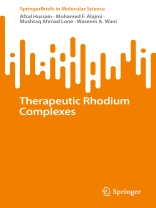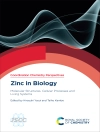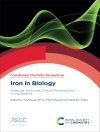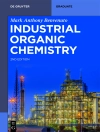This book describes the emergence and recent advances in the design and development of rhodium complexes as therapeutic agents. Different classes of anticancer rhodium complexes with particular emphasis on ligands containing nitrogen-oxygen donor atoms are presented. Anticancer rhodium complexes of N-heterocyclic carbenes are described, while half-sandwich, heterobimetallic, and multinuclear rhodium complexes are discussed. Therapeutic applications of rhodium complexes beyond cancer such as antibacterial agents or antiviral agents are also analyzed, among others. Their mechanism of action is overviewed in detail, and the authors thoroughly comment on the challenges and future outlooks of research in the development of rhodium metallodrugs. This title highlights the important research carried out in the development of therapeutic rhodium complexes and is of great interest to graduates and researchers working in the area of rhodium-based therapeutic drugs.
Table of Content
Introduction: Metal Complexes as Therapeutic Agents.- Chemistry of Rhodium.- Therapeutic Potential of Rhodium Complexes.- Mechanism of Therapeutic Action of Rhodium Complexes.- Challenges and Future Outlooks of Research.
About the author
Dr. Afzal Hussain is an associate professor at the Department of Pharmacognosy, College of Pharmacy, King Saud University, Riyadh, Saudi Arabia. He completed his Ph.D. in Chemistry at Jamia Millia Islamia, New Delhi, India. in 2010. He has worked as a postdoctoral fellow at Sultan Qaboos University, Muscat, Oman, and Aligarh Muslim University, Aligarh, India. Having been admitted as a member to the Royal Society of Chemistry (MRSC) in 2018, he has 12 years of experience in teaching and research. His areas of research include separation science, bioanalysis, drug analysis, cosmeceutical analysis, nutraceutical analysis, and synthesis of novel nanomaterials as drug delivery carriers. Dr. Hussain completed a research project as a co-investigator entitled ‘Synthesis and Characterization of Novel Metal-Based Anticancer Drugs” Grant No: أ ت- 36 – 227 Funded by KACST, Riyadh.
Prof. Mohamed Fahad Al Ajmi is the head of the Skills Development Unit at the Department of Pharmacognosy, College of Pharmacy, King Saud University, Riyadh, Saudi Arabia. He completed his Ph.D. in Pharmacy in 2007. Dr. Al Ajmi has published more than 150 papers in international journals and is a member of many professional societies, including the American Society for Mass Spectrometry and the American Society of Pharmacognosy. He has received two prestigious awards from King Saud University: Excellence Award in Skills Development (2013) and Creative Learning and Teaching Award (2016).
Prof. Mushtaq Ahmad Lone is working as an associate professor and principal of Govt. Degree College Tral. Prof. Lone obtained his Masters Degree in Chemistry in 1984 and M.Phil. in 1987. He has worked on the complex formation between amino acids, peptides, and metal ions in the aqueous phase. He has been a prolific teacher with 30 years of teaching experience at college level. He has research interests in anticancer metallodrugs.
Dr. Waseem A. Wani is working as an assistant professor and the head of the Department of Chemistry at Govt. Degree College Tral, Kashmir, J&K, India. Dr. Waseem earned Ph.D. in Chemistry from Jamia Millia Islamia (Central University), New Delhi, in 2014. He has worked as a postdoctoral research fellow at Universiti Teknologi Malaysia (UTM), Malaysia, Institute of Nano Science and Technology (INST), India, and University of Minnesota (UMN), Twin Cities Campus, Saint Paul-Minneapolis, USA. He has research interests in anticancer metallodrugs, nanofunctionalization of anticancer metallodrugs, drug delivery, bioproducts, and water chemistry. He has authored and co-authored more than fifty research publications (original research papers, reviews, editorials, book chapters, books, brief books, and conference papers) of national and international repute. Dr. Waseem is an active reviewer of many reputed journals.












